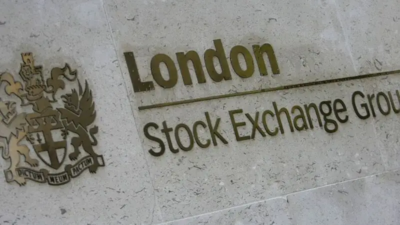Hong Kong stocks are back from the dead. Here’s why
Editor’s Note: Sign up for CNN’s Meanwhile in China newsletter, which explores what you need to know about the country’s rise and how it impacts the world.
Hong Kong’s benchmark Hang Seng Index surged more than 7% in April as the best-performing major index in the world. It’s now heading into a bull market, rebounding nearly 20% from its January low.
The rebound marks a sharp turnaround after a weak start to 2024 and years of heavy losses, which saw more than $3 trillion wiped off the value of the city’s stock market as global investors grew increasingly skeptical about China’s economic future and worried about geopolitical tensions with the United States.
But an improving economic landscape in China, cheaper valuations and a flurry of mainland investors putting money into Hong Kong to protect their portfolios from a weakening Chinese currency have combined to resuscitate the market.
“Foreign inflows have started to come back with the bottoming of the [Chinese] economy,” said Kelly Chung, chief Investment officer for multi assets at Value Partners, a Hong Kong-based asset management firm.
The valuation of Hong Kong stocks has also become more “compelling” relative to the rest of the Asian region after the pullback last year, said Zhikai Chen, head of Asian equities at BNP Paribas Asset Management. He added that there is a shift in investors’ sentiments as Chinese economic data turned more positive.
In recent days, investors have been getting increasingly upbeat because of reports that Beijing would roll out a “real solution” for the crisis-ridden property sector.
“Attention is squarely on China’s property market, seen as the linchpin of the country’s economic stability,” said Stephen Innes, managing partner at SPI Asset Management.
“Recent policy measures, ranging from lifting restrictions on homebuyers to providing support for developers’ funding needs, underscore the government’s commitment to bolstering this critical sector in 2024,” he said.
Economic recovery
There are signs that China’s economy might be bottoming out.
Manufacturing activity grew at the fastest pace in 14 months in April, according to a private survey released on Tuesday.
The Caixin/S&P Global manufacturing PMI rose to 51.4 in April from 51.1 in March, marking the sixth consecutive month of expansion, as new export orders recorded a solid increase because of improving global demand.
In the first quarter, China’s gross domestic product grew 5.3% from a year ago, thanks to robust growth in high-tech manufacturing.
“The PMIs, which are a leading economic indicator, suggest improving momentum since the start of the year,” said David Chao, global market strategist at Invesco.
“Heading into the middle of the year, the recent PMIs are in much better territory when compared to a year ago, and I think this is due to fiscal and monetary stimulus working their way into the economy,” he said.
Earlier this month, news outlet Caixin reported that Beijing is learning from Japan’s experience of decades of stagnation and is considering launching a national platform to acquire unfinished housing projects across the country. These projects would then be turned into affordable housing and the units would be sold or rented out.
“[This] is largely consistent with what we have long believed would be the most effective way to rescue the property sector,” said Nomura analysts on Monday.
“The Caixin report suggests Beijing is edging closer to a real solution for the property sector,” they added.
Cheap valuations
Chinese equities listed in Hong Kong are also appearing to be more attractive, particularly in comparison to Indian markets, which have been booming on the back of robust economic growth.

“We are observing investors starting to view India’s valuation as ‘expensive,’ and outflows have been seen from India to China [equities],” Angelina Lai, chief Investment officer at St James’s Place, wrote in her quarterly market update earlier this month.
“Although the macro picture in China is unpromising, the steep fall in Chinese equities has pushed the local equity risk premium above the trend,” she said.
Innes said global investors are currently “underweight” in Chinese markets, including Hong Kong, because of geopolitical tensions and concerns surrounding potential fallout from the upcoming US elections.
However, such market surges typically trigger “the fear of missing out (FOMO)”, especially given the attractive valuation of Chinese stocks compared to their US counterparts.
“As a result, we may see a global rotation of funds into Chinese equities, indicating that the current rally could have further momentum to sustain its upward trajectory,” he added.
Diversifying from a weak yuan
Hong Kong has also seen strong inflows of money from mainland China, where investors are concerned about further depreciation of the Chinese currency and mainland assets, according to BNP Paribas’ analysts.
The yuan has lost 4% of its value against the US dollar in the past year.
While other major central banks have kept their monetary policies tight to control inflation, the People’s Bank of China has cut rates multiple times and pledged to maintain ample liquidity this year to fight deflation.
Stock exchange data showed that southbound investors (meaning Investment from mainland China into Hong Kong) have bought nearly $20 billion of Hong Kong-listed stocks in March and the first three weeks of April on a net basis.
“We believe southbound investors could be using HK-listed equities to diversify their currency exposure in light of rising RMB depreciation pressure due to US-China interest rate differentials,” analysts from BNP Paribus said last week.
“In our view, mainland Chinese investors often prefer to diversify their holdings to non-RMB denominated assets (eg HK-listed shares and commodities) during periods of RMB depreciation,” they said, adding that depreciation pressure on the yuan could continue for the rest of the year.
Maybe You Like
London Stock Exchange urged to do more to hold onto retail traders
The UK stock market needs to improve investor communication and engagement in order to retain its individual traders, according to a report from online trade and investor provider CMC Markets. ADVERTISEMENTUK retail investors are increasingly...
Hargreaves Lansdown rejects private equity takeover bid
The UK investment platform says the offer from a group including the Abu Dhabi Investment Authority undervalues the firm. ADVERTISEMENTHargreaves Lansdown has rebuffed a takeover proposal worth £4.67 billion (€5.48 billion) made...
Ferrovial set to offload UK regional airports amid Heathrow deal uncertainty
Ferrovial is planning to sell its stake in three UK regional airports amid difficulties in finalising its £2.4bn sale of a 25% stake in Heathrow. ADVERTISEMENTSpanish infrastructure company Ferrovial is reportedly putting up for sale...





























